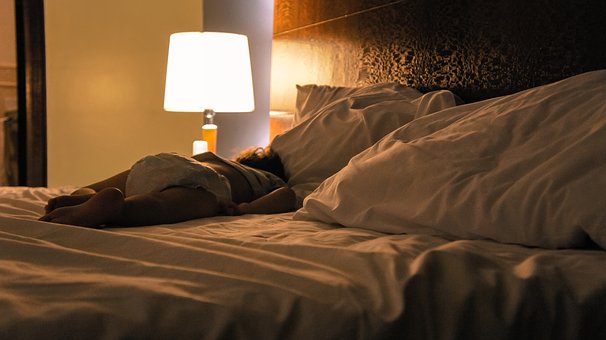We know that poor sleep is associated with obesity, and that screen time before bed can interfere with sleep. But what about light in the room while sleeping – light, TV, night lights, or even a light outside the room?
A recent study published in JAMA Internal Medicine investigated whether exposure to artificial light while sleeping is associated with weight gain and/or obesity. This was a study of over 43,000 women in the US and Puerto Rico, comparing the weight gain and risk of developing obesity in women who used no light at night, a small nightlight in the room, light outside the room, light on in the room, or TV on in the room.
At the start of the study, women who reported exposure to light at night were just slightly more likely to have obesity, but 12% more likely to have an elevated waist circumference (waist circumference is a marker of carrying fat centrally, which is the more dangerous metabolic fat that is associated with conditions like diabetes and heart disease).
After a mean of 5.7 years, they found that any exposure to artificial light at night (ie, any of the above categories) was associated with a 19% increased risk of developing obesity. Sleeping with a light or TV on in the room was associated with a 17% increased risk of gaining 5kg or more, and a 33% higher risk of developing obesity, compared to those with no light exposure at night.
So why would light at night increase obesity risk? Exposure to artificial light may directly suppress our production of melatonin, which messes up the circadian rhythm of our hormones, including cortisol and many others. Light may disrupt our normal sleep patterns and decrease the duration of sleep, leaving us feeling tired, reaching for high energy foods to keep us going through the day, and leaving us awake more hours of the day to eat.
Bottom line – best to have lights out while sleeping!
Follow me on twitter! @drsuepedersen
www.drsue.ca © 2019











